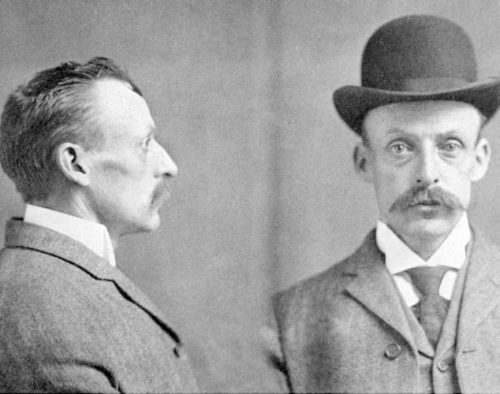
This is a guest contribution from Lisa Smalls.
The bogeyman—also known as the cause of horrid nightmares and wet beds.
The idea of the bogeyman lurking under the bed has haunted children for years. Even the slightest bump in the night or creak of the stairs is enough to scare them out of sleep when the infamous creature is fresh on the mind.
But where did the nightmarish tale of the bogeyman kidnapping children and eating them for dinner originate?
Origins
The word “bogeyman” originates from the Middle English word “bogge” which means hobgoblin.
Another early origin can be traced back to the word “bugbear” which was once used to describe a goblin/scarecrow/bear mashup that hunted and ate small children.
The idea of the bogeyman varies across different cultures. In America he is a creature that hides in dark places, most notably, under your bed.
However, in other countries, he is thought to be a man that kidnaps disobedient children to eat for dinner.
Although the bogeyman is defined differently across cultures, he is consistently used as a scare tactic when disciplining children.
Scare Tactic
Fear is a powerful emotion that can will a person into doing pretty much anything.
I can hear it now.
“If you get out of bed one more time, the bogeyman is going to snatch you up and eat you for breakfast tomorrow!”
How charming, mom and dad.
It’s already hard enough to get kids to fall asleep when they’re scared. You don’t need to terrify them from getting up to use the bathroom—a great way to soil their mattress and keep you up too.
Anyway, back to the bogeyman.
The American Bogeyman

Another consistency across cultures is that the bogeyman has no set appearance. All in all, he is a non-specific embodiment of terror.
That is until a name was paired with a face.
That’s right. In the late 1800s, a man by the name of Albert Fish, was nicknamed the “American Bogeyman” for his horrish crimes.
Fish, born and raised in the nation’s capital, grew up to be one of the most horrific murderers of all time. At just 20-years-old, Fish began to prey on young boys—kidnapping, sexually assaulting and sometimes, even eating them.
While this Bogeyman was executed for his crimes, the myth and legend of the original bogeyman remains strong to this day.
About The Contributor
Lisa is a freelance writer from North Carolina. When she isn’t writing, you can find her at the latest horror film to hit theatres or playing with her pup.
Got an idea you’d like to submit? We’re always looking for quality infotaining posts about true crime, horror, and the paranormal –or some blend thereof. Visit our Writers Wanted page for submission details. We’d love to have you join our Skeleton Crew!
P.S.
Yes.
That’s the answer to that question we know you’re wondering about. We do pay. Not a lot. Don’t get excited. But we believe in paying writers for their time and energy. You’ll find complete details on the Writers Wanted page.
